
- For PC
- For MAC
- For Linux
- OS: Windows 7 SP1/8/10 (64 bit)
- Processor: Dual-Core 2.2 GHz
- Memory: 4GB
- Video Card: DirectX 10.1 level video card: AMD Radeon 77XX / NVIDIA GeForce GTX 660. The minimum supported resolution for the game is 720p.
- Network: Broadband Internet connection
- Hard Drive: 17 GB
- OS: Windows 10/11 (64 bit)
- Processor: Intel Core i5 or Ryzen 5 3600 and better
- Memory: 16 GB and more
- Video Card: DirectX 11 level video card or higher and drivers: Nvidia GeForce 1060 and higher, Radeon RX 570 and higher
- Network: Broadband Internet connection
- Hard Drive: 95 GB
- OS: Mac OS Big Sur 11.0 or newer
- Processor: Core i5, minimum 2.2GHz (Intel Xeon is not supported)
- Memory: 6 GB
- Video Card: Intel Iris Pro 5200 (Mac), or analog from AMD/Nvidia for Mac. Minimum supported resolution for the game is 720p with Metal support.
- Network: Broadband Internet connection
- Hard Drive: 17 GB
- OS: Mac OS Big Sur 11.0 or newer
- Processor: Core i7 (Intel Xeon is not supported)
- Memory: 8 GB
- Video Card: Radeon Vega II or higher with Metal support.
- Network: Broadband Internet connection
- Hard Drive: 95 GB
- OS: Most modern 64bit Linux distributions
- Processor: Dual-Core 2.4 GHz
- Memory: 4 GB
- Video Card: NVIDIA 660 with latest proprietary drivers (not older than 6 months) / similar AMD with latest proprietary drivers (not older than 6 months; the minimum supported resolution for the game is 720p) with Vulkan support.
- Network: Broadband Internet connection
- Hard Drive: 17 GB
- OS: Ubuntu 20.04 64bit
- Processor: Intel Core i7
- Memory: 16 GB
- Video Card: NVIDIA 1060 with latest proprietary drivers (not older than 6 months) / similar AMD (Radeon RX 570) with latest proprietary drivers (not older than 6 months) with Vulkan support.
- Network: Broadband Internet connection
- Hard Drive: 95 GB
A new addition to the Soviet fleet – the Project 7U Destroyer. Ships of this class served in defense of the Soviet Union from the earliest days of its involvement in the Second World War.
In the early 1930s, the young yet ambitious and fast-developing Soviet state decided to commission new destroyers to defend its territorial waters. The new ships were intended to replace the outdated ships of this class, which had put in a poor showing during the First World War. A special design bureau was established to meet this need, and the cutting-edge Italian Maestrale-class destroyers were selected as prototypes. Along with many fine qualities, the Project 7 destroyers (as the new warships were called) also came with a host of weaknesses. One of these was the linear placement of the engines – this became the rationale for the complete redesign of the whole series. This was prompted by the withdrawal of the British Hunter destroyer from service, which had the same engine placement – a single mine was enough to render the British ship completely immobile. This move compelled the shipbuilders to fully review the placement of the power system in Project 7 destroyers. As a result, all finished ships were fitted with engines using an echelon layout.
The modernized version was designated with the letter “U” for “upgraded.” The ship’s silhouette changed from single-funnel to twin-funnel, while the deck superstructure and armament remained unchanged. By improving the survivability of the powertrain and considerably tightening the arrangement of the destroyer’s sections, the engineers sacrificed both the speed and travel range, and changed the placement of the large-calibre anti-air guns to something far less practical. The series was launched despite these shortcomings – by the time Germany invaded the USSR, seven 7U units had been built, and another 11 ships were completed throughout the war.
| Members of the pre-beta test will be able to test this destroyer in one of the future tests, and results of this test will taken into account for the future development of our fleet. |
Naval commanders can look forward to experiencing all the advantages and disadvantages of the Project 7U destroyers in War Thunder. The Project 7U is a comparatively slow, highly resilient and superbly armed vessel. Her main power system consists of two engine rooms and two boiler rooms. This Soviet giant has a nominal output of around 60,000 hp and can reach a respectable speed of 36–38 knots (up to 70 km/h). The destroyer has a crew of 271, most of whom service the ship’s enormous arsenal. The destroyer features four 130mm cannons, two on the bow and two on the stern. The four cannons are supplemented with torpedo armament in the form of two three-barrel automatic weapons, as well as depth charges. The anti-air armament includes several calibres: two 76mm guns on the stern, three 45mm semi-automatic guns behind the first funnel, and four 12.7mm DShK machine guns placed at the front of the destroyer.
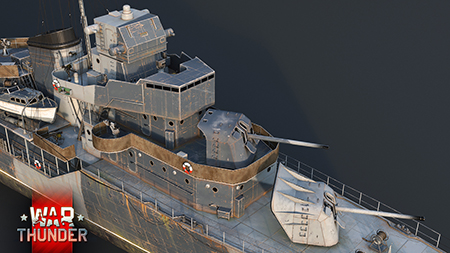 |
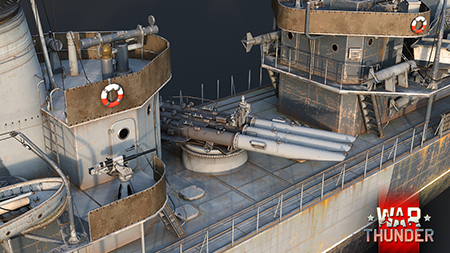 |
The main objective for Project 7U destroyers in War Thunder battles will be taking on their destroyer “classmates” and providing artillery support during small fleet maneuvers. The placement of the anti-aircraft guns is far from ideal, limiting the arc of fire and leaving the destroyer relatively vulnerable to aerial attacks. Destroying a huge Project 7U ship isn’t easy, which is why commanders should concentrate on controlling and aiming the ship’s guns during battle. Reloading her main cannon takes more than 11 seconds, even with a highly skilled crew. However, opponents will certainly know when they’ve been hit – the 130mm shells deliver crippling damage, while a precise torpedo strike is more than enough to halt the advance of enemy boats.
Download Wallpaper 1280x1024 | 1920x1080 | 2560x1440
Keep an eye on our news and be the first to learn about new additions to War Thunder! Until next time!
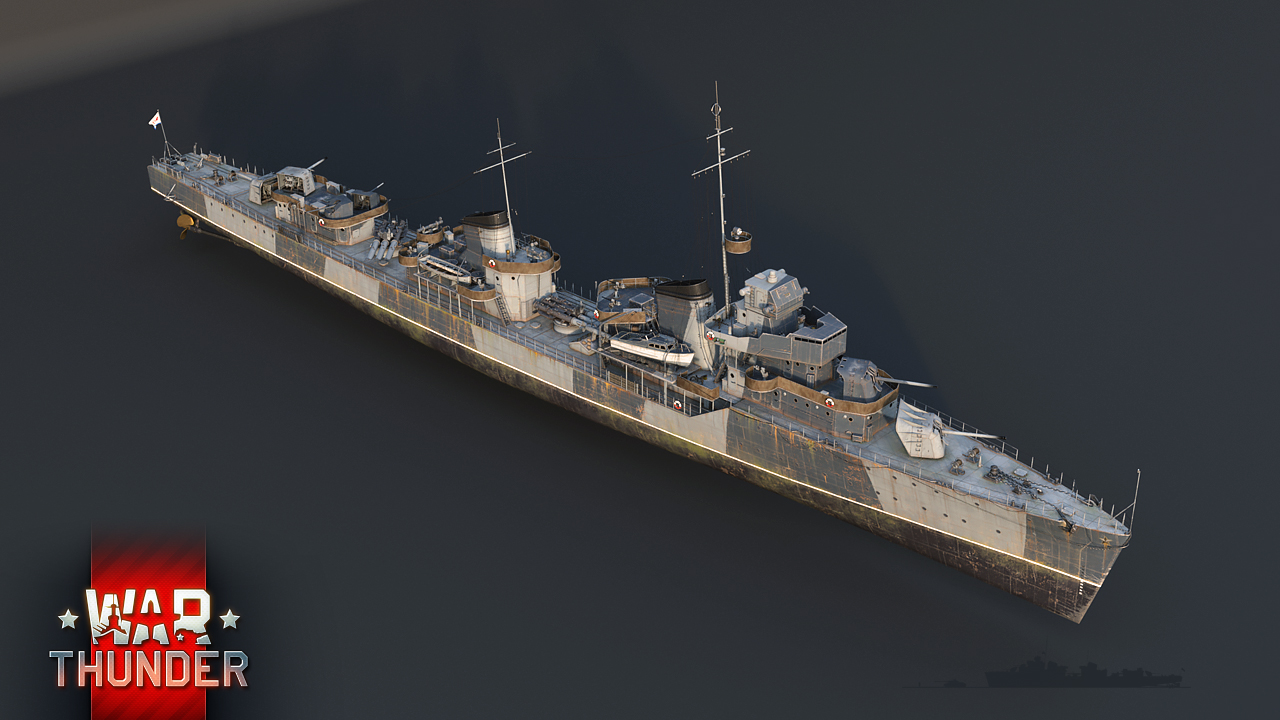


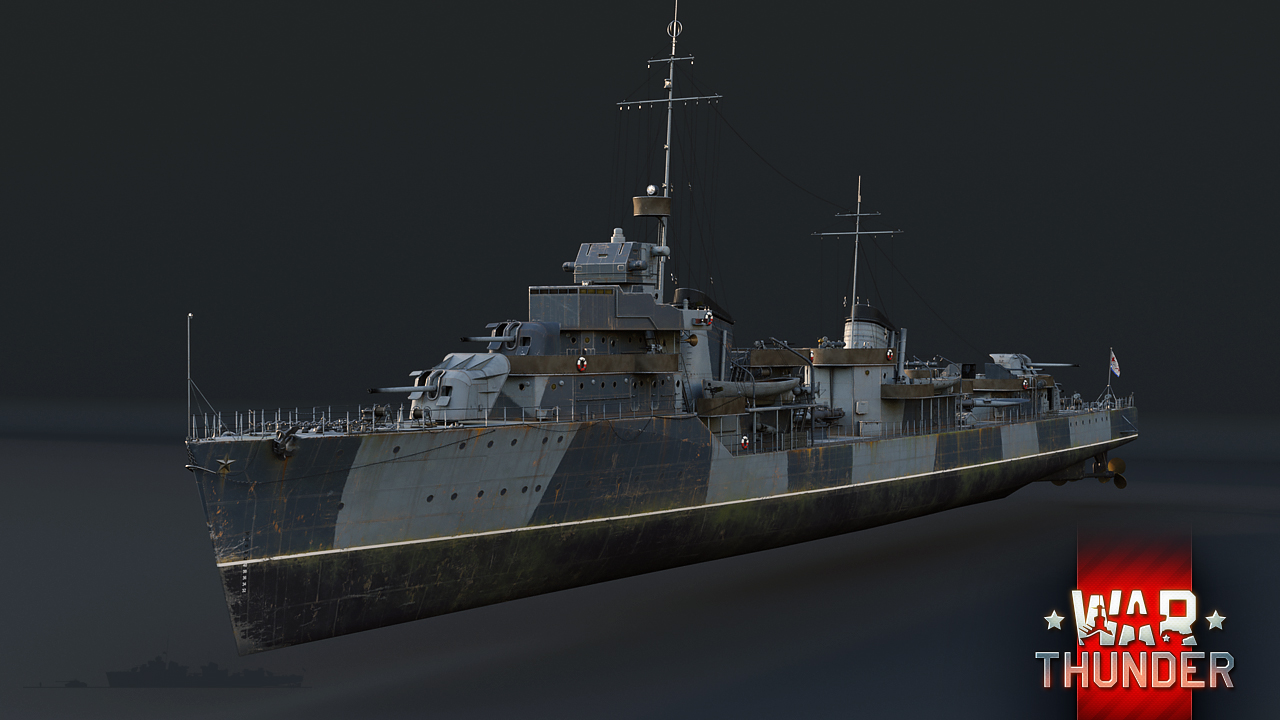
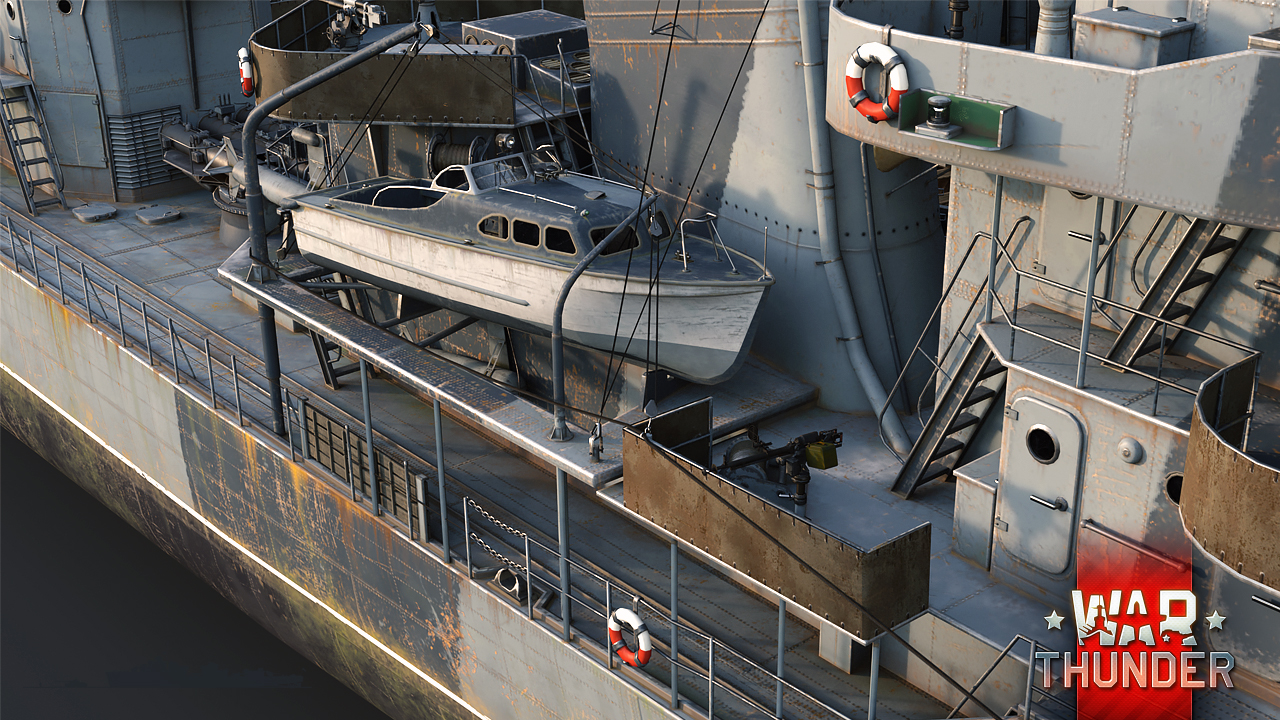
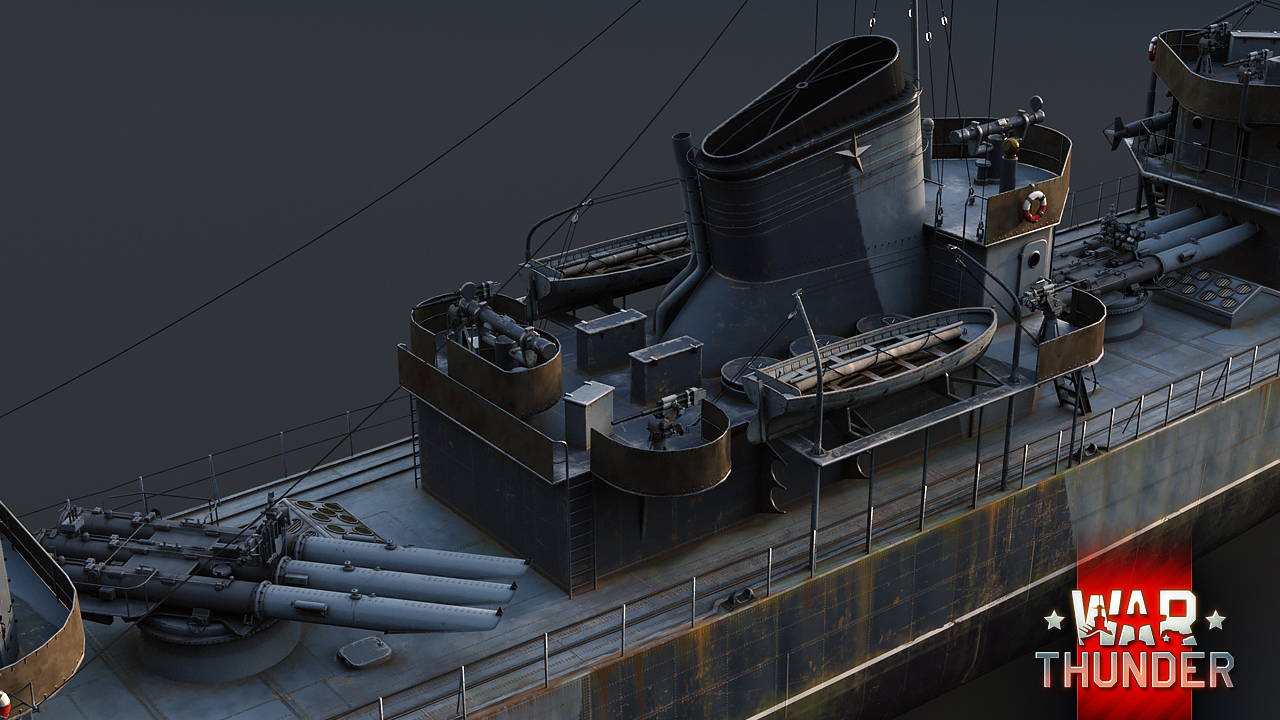
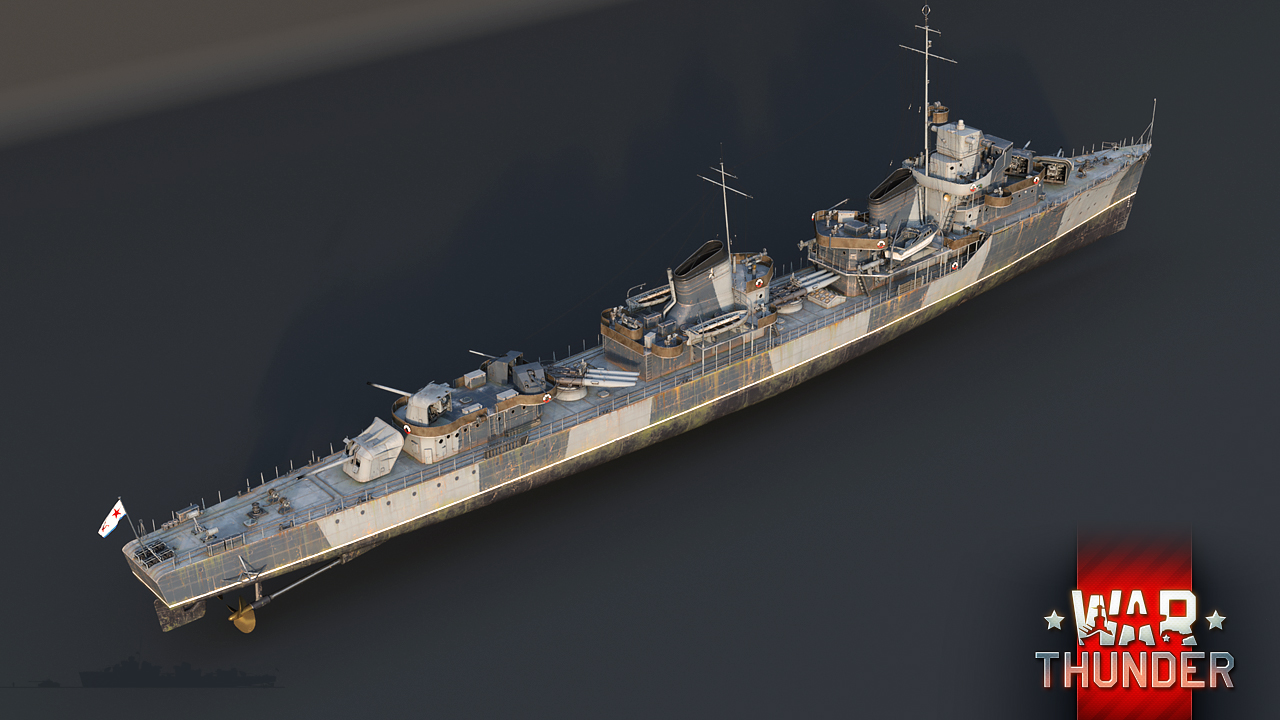

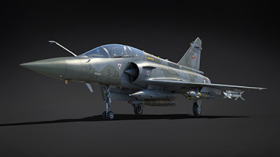


Comments (127)
Looks nice... fingers crossed for adding Wickes class destroyers though. I'd love to be running about in DD163.
LET THE BIAS BEGIN COMRADS (((((((
YES SKILL WILL WIN, *ZIS-30 has killed IS-2*
world of warships, eat your heart out...
first the comunity complained about not haveing big ships (i was one of them) now that we will be able to teast them they complain about not haveing the right ships or the ones that they want they dont seem to remember this is still closed beta and every thing can change
You're misunderstanding the issue. We want to know if we will test Cruisers and Battleships. Right now, we know nothing about them. I love Destroyers, and these models are beautiful, but we only have 1 of the 4 major ship types necessary for this game to be complete (the other 3 being Light Cruisers, Heavy Cruisers, and Battleships).
Awesome! Very happy to see that the Russians are getting something relatively modern (for WWII that is). And for anyone complaining that it's a "paper" vehicle, plenty of those in other trees.
+Shellder, I agree this is Disgusting putting something that barely left the Drawing Board before something that has been there and tested (World of Warships)
Really? Russians had/have a really large navy that was heavily used on all fronts here is this ship "https://en.wikipedia.org/wiki/Soobrazitelnyy-class_destroyer", now do the research complainer...
The naysayers here who want instant gratification, can go take a long walk off a short pier; that may make you happy. Keep up the good work Gaijin.
How about the 327 foot coast guard cutters?
Im not even gonna start hatin. This is just beautiful. Thanks Gaijin :)
release to the public :D
Submit a complaint